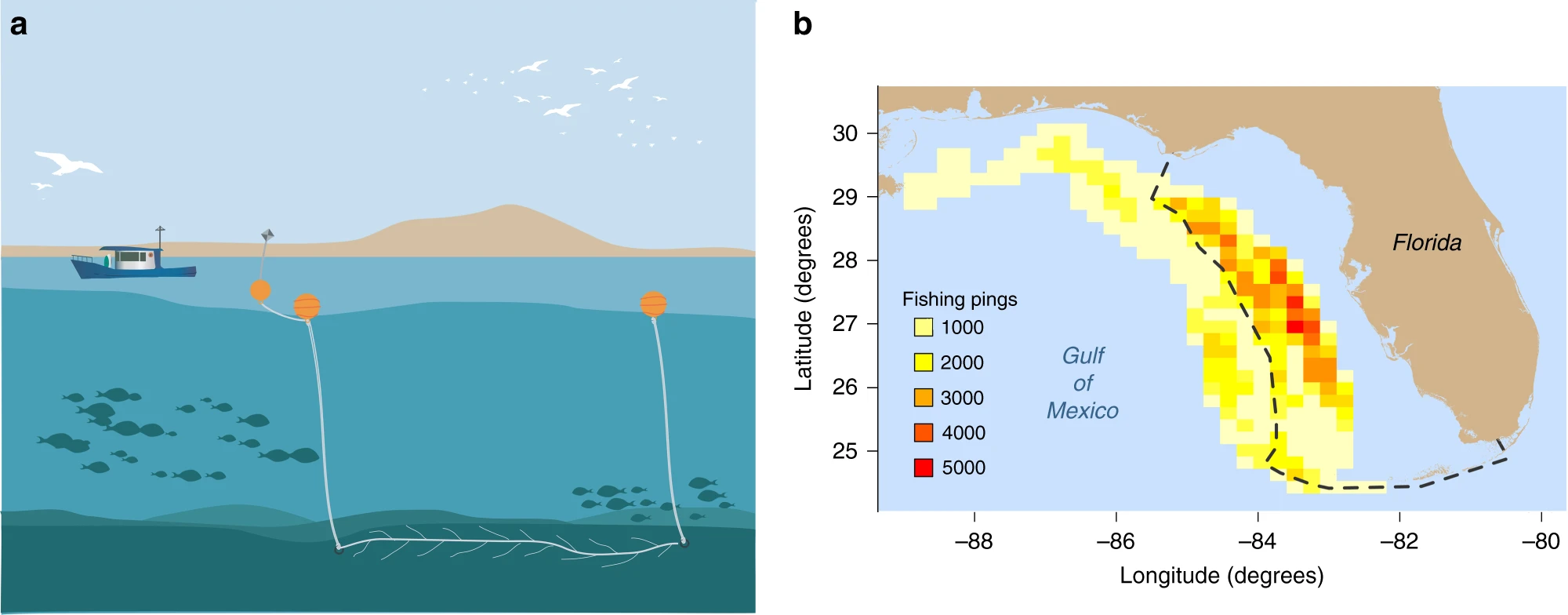
When making choices, people tend either to go with what they know or try something new. We experience this trade-off every day, whether choosing a route to work or buying breakfast cereal. But does one strategy have an advantage over another? Researchers decided to examine this question by looking at fishing boat captains, who face this choice again and again when deciding where to fish.
To find out which strategy leads to greater success in the real world, scientists from the University of California, Davis, and their coauthors examined 540,000 fishing vessel position records from nearly 2,500 commercial fishing trips in the U.S. Gulf of Mexico, along with their revenues. The results are published in the journal Nature Communications.
“It looks like exploration pays off in the face of uncertainty,” said co-leading author Shay O’Farrell, a postdoctoral researcher in the lab of Professor James Sanchirico from the UC Davis Department of Environmental Science and Policy. “This is particularly important in the context of global environmental change, when disturbances such as storms and droughts are predicted to increase.”
FUTURE-PROOFING OUR LIVELIHOODS
The study found that some vessels consistently explore new territory more than others and invest more time and resources into sampling new places to fish. In times of stability, exploratory vessels performed no better or worse on average than vessels that stuck with consistency.
“In relatively stable environments, we would expect that any gains from switching behaviors would usually go away, otherwise vessels would be changing how they fish,” Sanchirico said.
But when boats were suddenly forced to fish elsewhere during a 2009 closure of popular fishing grounds in the Gulf, those with a history of exploration experienced significantly less impact from the disruption. That may be because the boat captains could draw from their history of exploration to select new grounds.
O’Farrell suggests the findings may hold lessons for times of uncertainty.
“One way in which we can future-proof our livelihoods is by exploring new options,” O’Farrell said. “That way, if our current options become unavailable or less attractive in the future, we can fall back on our knowledge of alternatives. Sharing our knowledge could make us even more resilient still, as we can draw from a larger pool of experience.”


Leave a Reply